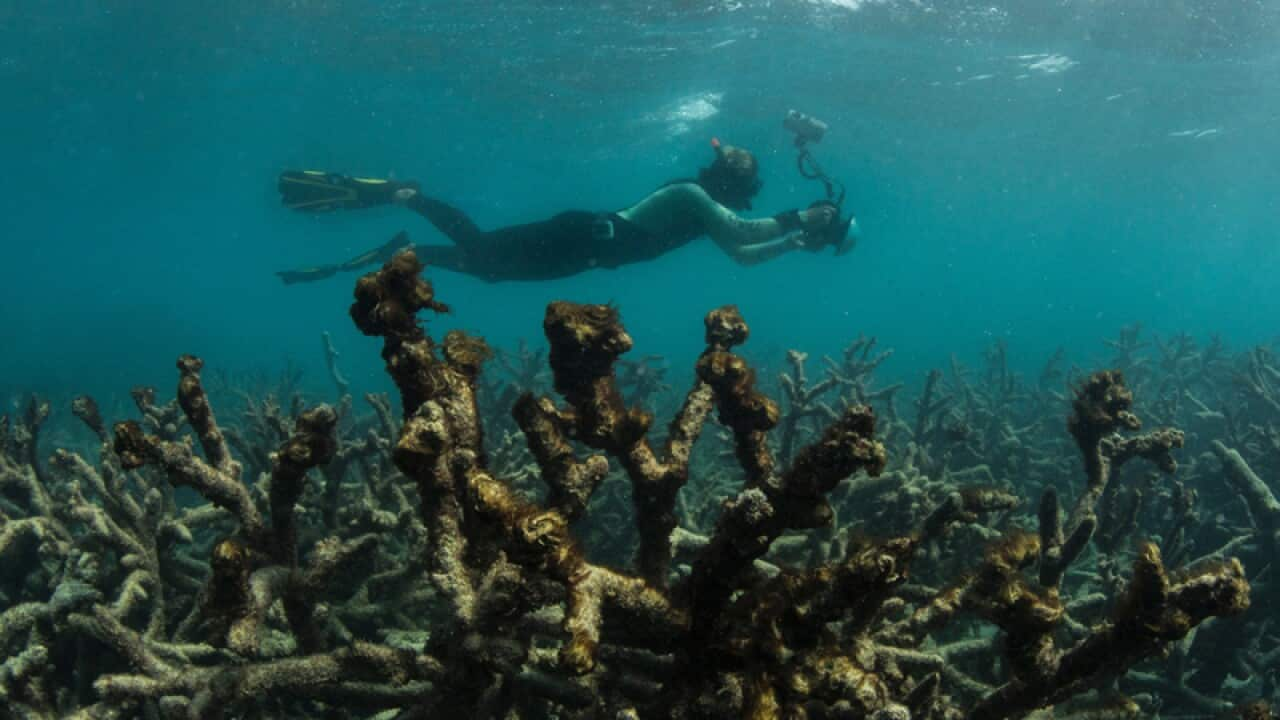The survival of the Great Barrier Reef rests on cutting global warming, with efforts to improve water quality and fishing doing little to prevent major bleaching, according to a new study.
The study released in the scientific journal Nature on Thursday shows protecting the embattled natural world wonder from fishing and poor water quality is doing little to prevent bleaching.
"Global warming is the number one threat to the reef. The bleaching in 2016 strongly reinforces the urgent need to limit climate change," co-author David Wachenfeld from the Great Barrier Reef Marine Park Authority said.
The reef experienced the worst coral bleaching on record last summer with protective efforts making no difference to the amount of bleaching during the extreme weather.
"With rising temperatures due to global warming, it's only a matter of time before we see more of these events," Dr Wachenfeld said.
Coral researchers will take to the sea and the sky to examine the reef to determine whether the recent heatwave has caused further damage, the Australian Research Council Centre of Excellence said on Thursday.
"We're hoping that the next two to three weeks will cool off quickly and this year's bleaching won't be anything like last year," ARC taskforce convener Terry Hughes said in a statement.
"It was the third major bleaching to affect the Great Barrier Reef, following earlier heatwaves in 1998 and 2002. Now we're gearing up to study a potential number four."
Prof Hughes said scientists have found no evidence that past exposure to bleaching toughens the corals.
The study found that while protective measures did not prevent bleaching during the 2016 heatwave, improving water quality and protecting the reefs from fishing would likely help bleached reefs recover in the longer term.









